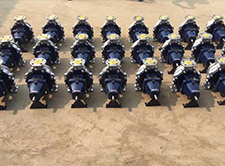Yoruba
- Afrikaans
- Albanian
- Amharic
- Arabic
- Armenian
- Azerbaijani
- Basque
- Belarusian
- Bengali
- Bosnian
- Bulgarian
- Catalan
- Cebuano
- Corsican
- Croatian
- Czech
- Danish
- Dutch
- English
- Esperanto
- Estonian
- Finnish
- French
- Frisian
- Galician
- Georgian
- German
- Greek
- Gujarati
- Haitian Creole
- hausa
- hawaiian
- Hebrew
- Hindi
- Miao
- Hungarian
- Icelandic
- igbo
- Indonesian
- irish
- Italian
- Japanese
- Javanese
- Kannada
- kazakh
- Khmer
- Rwandese
- Korean
- Kurdish
- Kyrgyz
- Lao
- Latin
- Latvian
- Lithuanian
- Luxembourgish
- Macedonian
- Malgashi
- Malay
- Malayalam
- Maltese
- Maori
- Marathi
- Mongolian
- Myanmar
- Nepali
- Norwegian
- Norwegian
- Occitan
- Pashto
- Persian
- Polish
- Portuguese
- Punjabi
- Romanian
- Russian
- Samoan
- Scottish Gaelic
- Serbian
- Sesotho
- Shona
- Sindhi
- Sinhala
- Slovak
- Slovenian
- Somali
- Spanish
- Sundanese
- Swahili
- Swedish
- Tagalog
- Tajik
- Tamil
- Tatar
- Telugu
- Thai
- Turkish
- Turkmen
- Ukrainian
- Urdu
- Uighur
- Uzbek
- Vietnamese
- Welsh
- Bantu
- Yiddish
- Yoruba
- Zulu
Telephone: +86 13120555503
Email: frank@cypump.com
Nov . 19, 2024 22:33 Back to list
high pressure slurry pump
High Pressure Slurry Pump An Overview of Applications and Efficiency
In industrial processes where solid-liquid mixtures are prevalent, high pressure slurry pumps play a critical role in ensuring efficient transport of abrasive and viscous materials. These specialized pumps are designed to handle a wide range of slurries, making them essential in mining, mineral processing, wastewater treatment, and various other industries.
Understanding Slurry Pumps
Slurry pumps are a type of centrifugal pump specifically engineered to move slurries, which are mixtures of solid particles suspended in liquids. Due to the abrasive nature of the suspended solids, conventional pumps may not withstand the wear and tear associated with these fluids. High pressure slurry pumps, therefore, have been developed with robust materials and unique designs to address this challenge.
The key features of high pressure slurry pumps include their strong construction, which often utilizes high-chrome alloys or rubber linings to resist erosion. They typically possess a wider throat opening to accommodate larger solid particles and reduce the likelihood of blockages. Moreover, these pumps are capable of generating considerable pressure, allowing them to transport slurries over significant distances and heights, which is vital for many slurry handling applications.
Applications in Various Industries
1. Mining and Mineral Processing In the mining industry, high pressure slurry pumps are used to transport mineral slurries from the mining site to processing facilities. These pumps are essential in functions such as tailings disposal and concentrate transport. They ensure that valuable minerals are efficiently moved without significant loss or damage.
2. Construction and Concrete In construction, high pressure slurry pumps facilitate the transportation of cement and other fine aggregates, ensuring that concrete can be poured accurately and effectively. Their ability to handle highly viscous mixtures makes them invaluable in projects requiring precise material placement.
high pressure slurry pump

3. Wastewater Treatment High pressure slurry pumps are also instrumental in wastewater treatment facilities. They transport sludge and other particulate-laden streams through various treatment stages, contributing to the efficient processing of waste materials and ensuring environmental compliance.
4. Chemical Processing In the chemical manufacturing sector, these pumps are used to move slurries of different chemicals and raw materials, where they must withstand not only abrasiveness but also potential corrosiveness. Thus, selection of appropriate materials becomes crucial to ensure longevity and reliability.
Efficiency and Maintenance Considerations
The efficiency of high pressure slurry pumps is often dictated by their design, material selection, and operational parameters. Operators must carefully consider the viscosity and density of the slurry, the size of solid particles, and the required flow rate to optimize pump performance.
Regular maintenance is essential to prolong the lifespan of these pumps. Wear parts such as impellers and liners should be routinely inspected and replaced as needed to prevent pump failure and maintain operational efficiency. Additionally, proper training for personnel on the operation and maintenance of high pressure slurry pumps can significantly reduce downtime and unexpected costs.
Conclusion
High pressure slurry pumps are a critical component in various industries dealing with abrasive and viscous materials. Their specialized design and construction enable them to perform efficiently under challenging conditions, making them indispensable in mining, construction, wastewater treatment, and chemical processing. As technology continues to evolve, these pumps are likely to become even more efficient, further enhancing their role in industrial operations. By investing in advanced slurry pump technology and embracing proper maintenance practices, industries can enhance their productivity and sustainability.
-
Horizontal Split Case Pump with GPT-4 Turbo | High Efficiency
NewsAug.01,2025
-
ISG Series Pipeline Pump - Chi Yuan Pumps | High Efficiency, Durable Design
NewsAug.01,2025
-
Advanced Flue Gas Desulfurization Pump with GPT-4 Turbo | Durable & Efficient
NewsJul.31,2025
-
ISG Series Vertical Pipeline Pump - Chi Yuan Pumps | Advanced Hydraulic Design&Durable Construction
NewsJul.31,2025
-
ISG Series Vertical Pipeline Pump - Chi Yuan Pumps | Energy Efficient & Low Noise
NewsJul.31,2025
-
pipeline pump - Chi Yuan Pumps Co., LTD.|High Efficiency&Low Noise
NewsJul.31,2025










